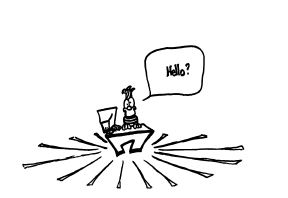Op 21 februari 2017 stemt de Eerste Kamer over het veelbesproken Lerarenregister. Het is bedoeld om de kwaliteit van het onderwijs te garanderen. Dat kan onder andere door van leraren te vragen hun bekwaamheid op orde te houden. Prima. Alleen: leraren worden in een mal gedrongen; een bredere aanpak kan veel meer voordelen opleveren.
Hoe zit het in elkaar?
In dit beroepsregister moeten leraren elke vier jaar aantonen dat zij hun bekwaamheid hebben onderhouden. Leraren mogen in hun register alleen professionaliseringsactiviteiten opnemen die worden verzorgd door geaccrediteerde instellingen. En daar wringt de schoen: dit zijn cursussen, workshops en opleidingen die buiten de school(muren) worden aangeboden. Ze zijn losgeknipt van de school zelf, de plek waar leraren functioneren. Professionalisering die door de school zelf wordt verzorgd, telt niet mee voor het register.
Dat is, zacht uitgedrukt, vreemd. Want uit de wetenschappelijke literatuur komt helder naar voren dat ‘leren op de werkplek’ niet alleen motiverend is voor leraren, maar zeker op lange termijn ook het meest effectief. Collegiale consultatie en observatie, peer coaching, leesgroepen, vakontwikkelgroepen, docentontwerpteams, professionele leergemeenschappen, kenniswerkplaatsen, en onderzoeksateliers: voorbeelden die van de werkplek (de school zelf dus) een echte leeromgeving voor leraren maken. Het geleerde wordt zo gemakkelijker toegepast in het werk en omgekeerd krijgt het werk van leraren een plek in hun leren en ontwikkelen. Een principe dat in het bedrijfsleven gemeengoed is; efficiënt en effectief, samenwerkingsgericht en gericht op kennisdelen. Scholen passen dit dan ook al toe. Ze investeren zo niet alleen in het professionaliseren van hun medewerkers, ze zorgen er tegelijkertijd voor dat de school zélf een duurzame professionele omgeving wordt. Het inhuren van extern, dus duur aanbod van buiten de school is minder effectief.
Voorbeelden
Drie concrete voorbeelden van scholen waarmee het ICLON samenwerkt. Van activiteiten die in het nieuwe Lerarenregister niet meer zouden meetellen. Zo heeft een school een aparte ‘academie’ ingericht waar workshops worden verzorgd door zowel leraren uit de school zélf als door buitenstaanders. Leesgroepen, boekenclubs en onderzoeksteams presenteren er hun bevindingen. Leraren die elders een workshop volgden, geven die kennis door, maar dan gekoppeld aan de specifieke eisen en wensen van de school. Voor het Lerarenregister telt dit niet.
Een andere school werkt met peer review door leraren: zij observeren elkaar tijdens het lesgeven, komen met opmerkingen en kritiek volgens een bepaald format en stellen hun onderwijs(methoden) op basis hiervan bij. Deelname aan zo’n peer review wordt door de school verplicht gesteld en is onderdeel van de beoordeling aan het eind van het jaar. Telt niet mee in het Lerarenregister.
In een derde school wordt in vaksecties gewerkt aan het ontwikkelen van het schoolvak, het ontwikkelen van materiaal en in onderzoek naar de werkzaamheid en toepasbaarheid van dat onderwijsmateriaal. Leren leraren een hoop van, wordt het onderwijs beter van, want direct toepasbaar in de eigen werkzaamheden. Maar telt niet mee.
Dus
Deze voorbeelden worden in meer scholen uitgevoerd. En er zijn meer voorbeelden te noemen. Ze dienen allemaal hetzelfde doel: maak het onderwijs en dus de school beter. Zeker als – en dat is een voorwaarde –activiteiten meerdere jaren meegaan. Het Lerarenregister en – daar ging het toch om? – de kwaliteit van de lessen gaat erop vooruit als dergelijke activiteiten in stand blijven. Een professionaliseringsbeleid dat medewerkers stimuleert, uitdaagt en laat leren met collega’s hoort dan ook binnen het register.








Recent Comments